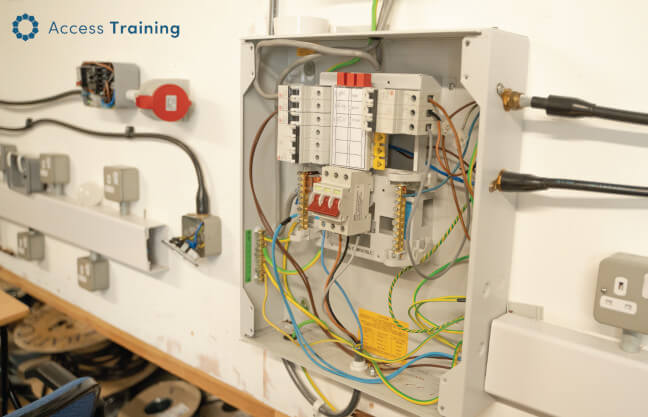
An apprenticeship is an incredible opportunity for those looking to progress into an electrical career. If you want to become an electrician, then an electrical apprenticeship will get you to the required skill level and enable you to earn while you learn in no time.
Employers value those who have completed apprenticeships as they show that the candidate has relevant job experience within the electrical trade. Although, it is important to always be on your top form as an electrical apprentice. To ensure that you stay top of the class, follow our do's and don'ts tips for apprentice electricians.
Top Tips for Electrical Apprentices...
- Show initiative
- Be honest
- Be punctual
Show initiative
If you've landed a position on an apprenticeship course, well done! It takes lots of hard word and dedication to get to this point, but your motivation shouldn't stop there. Those who show initiative and a good work ethic will be highly commended by their course leaders, potentially opening up further career progression opportunities in the future.
To stay in the good books of your electrician course leaders, follow these suggestions:
- Ask questions - no question is a silly one!
- Show your dedication - whether it be staying for an extra 20 minutes to get the job done, or asking for something else do to once you've finished a task.
- Engage with others - give your opinion, be curious, and collaborate with other course members when you can.
Be honest
If you're an electrical apprentice, your course leader won't expect you to know everything. Their job is to help you learn. If you knew everything there was to know about electricals, then there would be no point applying for an electrical apprenticeship, right?!
Have the confidence to say when you don't know something, and always admit your mistakes. If you evaluate why you did something wrong and learn from it - even better! You'll be highly respected by your course leader and peers. Honesty and the ability to evaluate your performance are incredibly desirable and transferable skills in an electrician's career.
Remember - an apprenticeship is a marathon, not a sprint.
Be punctual
This might seem like an obvious one, but it's surprising how many apprentices think it's okay to rock up an hour late to their job! Being an electrical apprentice is a very physically demanding job. Of course, you're not tied down to a desk in an office, but the same rules of punctuality apply.
If you can't turn up to your apprenticeship on time, how can your employer trust that you'll turn up for a customer? Being on time is one of the most basic representations of respect you can show to your course leader for the dedication they give for you to learn the trade.
Respect your teacher's time, and they will always respect yours.
Things You Shouldn't Do as an Apprentice Electrician...
Be the stereotype
Many people used to think apprentices were lazy teenagers that just want an easy job to get paid for. Don't let this damaging stereotype continue! Thankfully, many people now understand the value of apprenticeships and what they can offer to the trade industry.
Always remember: if you're on the job, your phone should stay in your pocket. It's very disrespectful to be on your phone when someone is giving you their time and expertise to help you become a better electrician. The bottom line is that it looks incredibly unprofessional and it can set a very bad precedent for the rest of your electrical apprenticeship.
Disrespect people's belongings
As an apprentice electrician, you will be working with a lot of different tools and pieces of equipment. Sometimes, you may need to borrow equipment from a peer, or a course leader.
Tools and equipment are extremely personal items - after all, they're essential to an electrician's career. If you borrow any tools, ensure that you treat them with the utmost care and respect.
Of course, accidents happen sometimes and equipment breaks, but there's no need to be careless! It's actually very dangerous to be careless in an electrical environment - there are many hazards that could cause harm to yourself or others around you.
So, always be aware of your surroundings and what you are doing, and treat any equipment (whether it be your own, or somebody else's) with care.
Wing it
As we just mentioned - electrical engineering is dangerous. Never guess or wing it if you don't know how to do something or you could end up harming yourself and others. We understand that you may feel embarrassed to put your hands up and say 'I actually don't know what to do in this situation', but honesty is always the best policy where safety is concerned.
Hazards are everywhere in electrical work, with live wires and the risk of electrical shocks and burns. Don't be a martyr and protect yourself and the others around you by always being aware of what you need to do. And if you don't, double check!
Are you ready to take on an apprencticeship?
For more information on our electrical apprenticeships, click the buttons below and kickstart your new career today.
Electrical Apprenticeships Get In Touch
Learn your trade. Get qualified. Make it happen.
Read More: Retrain For a New Career in the Trades